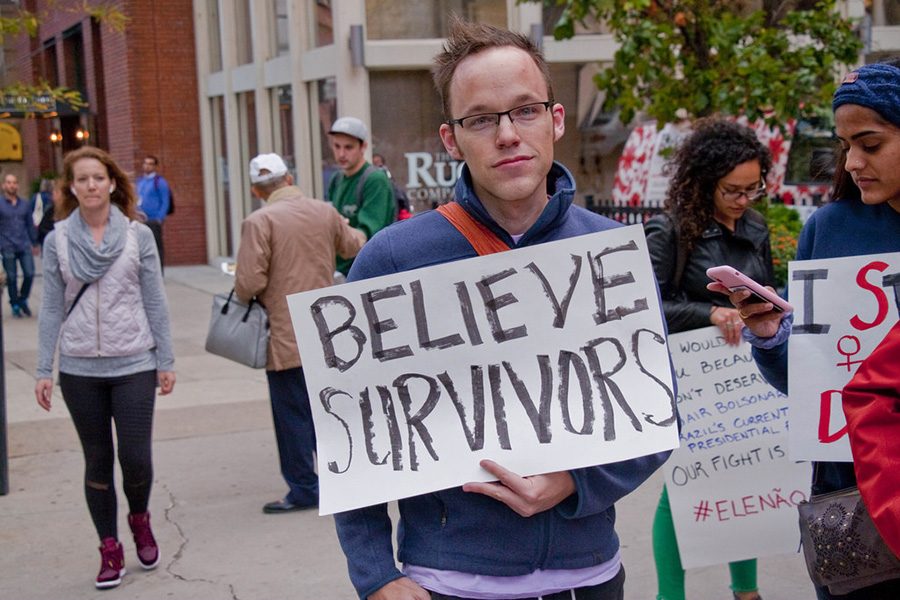OPINION: Stop discrediting assault victims for speaking up about it years later
Photo via Flickr (Charles Edward Miller) under Creative Commons license
The number of irreversible and life-changing traumas that sexual assault survivors go through is traumatic enough, and discrediting the victims because of the time they chose to report their assault is only adding onto the victim-blaming culture that continues to thrive in our society.
It has been brought to the attention of thousands of Americans nationwide that Brett Kavanaugh, President Trump’s Supreme Court nominee, has been accused of sexually assaulting Christine Ford, a fellow high school student nearly thirty years prior. It was a nine-hour hearing whose outcome was decided a few weeks ago, ultimately culminating in Kavanaugh earning a seat on the serving court.
At least three of my teachers have brought up this case in my classes, so naturally, comments about it have been made from my peers. Many have been saying that her story is automatically discredited, or very suspicious, because of how long it took her to speak out on the assault.
This is something that occurs often whenever a sexual assault victim decides to speak up, and it is a behavior that needs to end. Due to so many people constantly jumping to these conclusions, sexual assault victims that have not spoken out about their experience end up staying quiet and never reporting it because they feel like they will only be shamed and disregarded.
Society has a tendency to shame sexual assault victims, which causes many victims to feel that humiliation toward themselves before even reporting it. Psychologist Gershen Kaufman said that shame is the reaction that humans naturally feel whenever they are violated. Adding more shame to these victims’ lives will only make the situation worse and the reports of assault decrease while not changing how often assault happens.
After being sexually assaulted, the victims may feel humiliated with their own selves. That emotion alone can be nearly intolerable for them. The shame that society as a whole could give them if they end up speaking up about it can feel ten times more unbearable for some.
Many members of society continue to blame victims, asking questions such as, “What was she wearing?” or “Was she flirting with him?” or “Did she have too much to drink?” These interrogations only point the finger at the victims and make it look like they are to blame for what happened, which causes them to feel the shame others are putting on them.
This will make them want to repress their emotions and trauma, which is exactly why many victims either never report the incident or even go as far as convincing themselves that it was their fault or that it never happened.
Some victims are forced into silence for many reasons: their attacker threatened to hurt them or their loved ones, their attacker was a family member or a person in a high rank of society, or the victims feel that no one will believe them.
The trauma of assault is devastating enough. The least we can do as a society is not automatically discredit victims simply because it is politically expedient.
Opinions expressed in editorials are those of the writer(s). These views may not represent the adviser, The Prowler, advertisers/sponsors, the Starr’s Mill High School administration or staff , or Fayette County Public Schools as a whole. Please see our FAQs for more information pertaining to the rights of The Prowler’s staff members.


